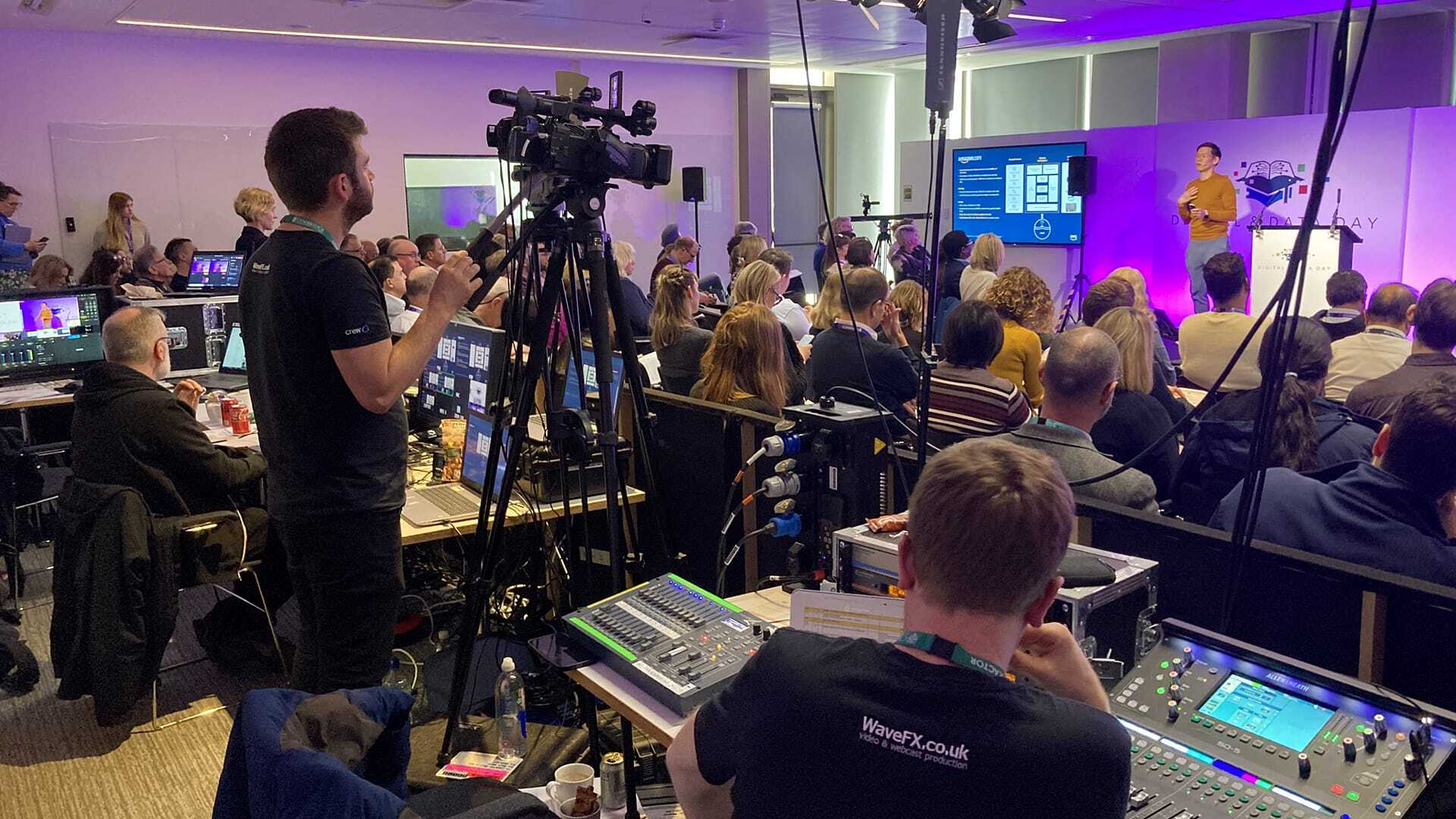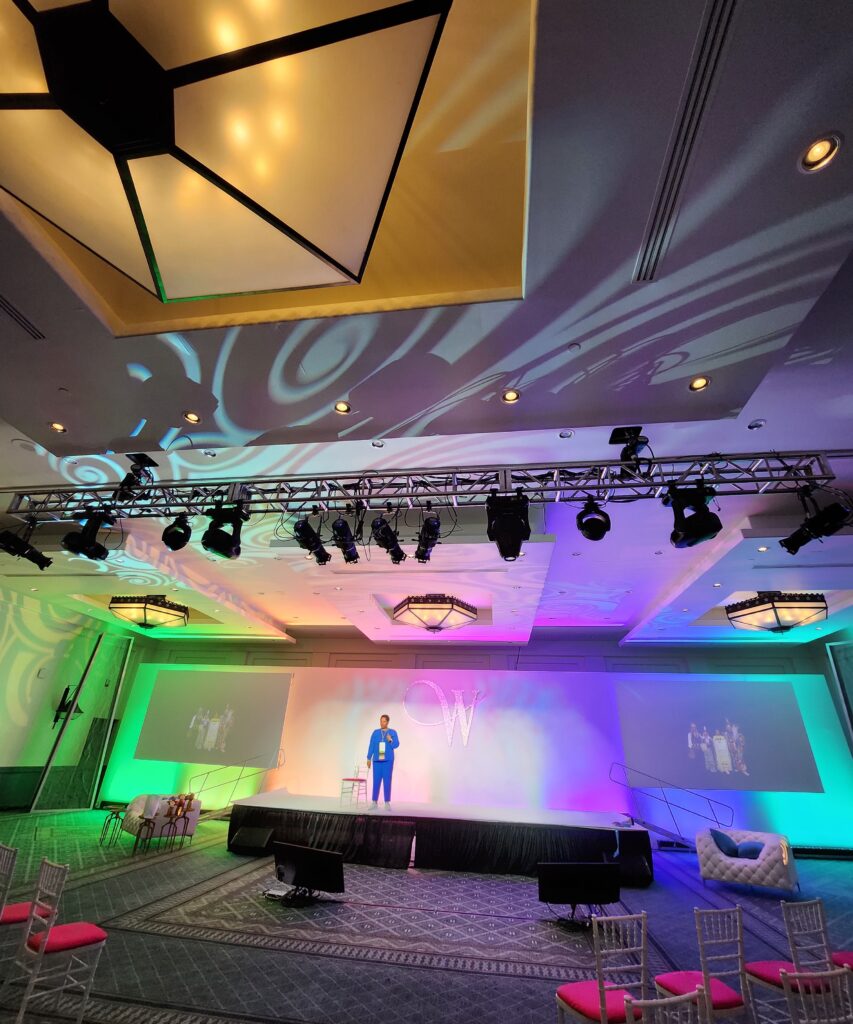Comprehending the Basics of Event Production
The details of event production require a comprehensive understanding of numerous foundational elements, including the facility of clear objectives, thorough budgeting, and strategic venue option. Each component plays an essential function in the seamless implementation of an occasion, affecting every little thing from audience engagement to logistical performance. Additionally, the technological facets of manufacturing and the dynamics of team control are similarly necessary to accomplishing a cohesive result. As we check out these essential aspects, one have to consider how they interrelate and affect the total success of an occasion. What strategies can be utilized to harmonize these aspects successfully?
Specifying Event Goals
Defining occasion goals is a vital action in the event manufacturing process, functioning as the structure whereupon all planning and execution are developed. Clear goals offer instructions, guaranteeing that all stakeholders understand the event's objective and wanted outcomes. These goals must be particular, quantifiable, attainable, relevant, and time-bound (WISE), which enables effective analysis of success post-event.
Determining the target audience is necessary in forming the objectives. Comprehending their rate of interests, demographics, and assumptions enables event organizers to tailor content and experiences that resonate with attendees. In addition, aligning the purposes with more comprehensive business goals fosters assistance from leadership and stakeholders, guaranteeing that the event adds to the general mission.
It is crucial to communicate these purposes plainly to all group members involved in the planning process. By establishing well-defined objectives, event manufacturers can develop a structured structure that guides decision-making and source allowance, ultimately leading to an effective event.
Budgeting for Success
Efficient budgeting is vital for the successful manufacturing of any event, as it provides a financial framework that sustains all preparing tasks. A well-structured spending plan enables event organizers to allocate resources efficiently, making certain that every aspect of the event is adequately moneyed while lessening the risk of overspending.
To create an effective budget plan, start by recognizing all potential expenses, such as location costs, catering, entertainment, devices rentals, and advertising. It is vital to classify these costs right into taken care of and variable prices, which assists in understanding which components are non-negotiable and which can be changed based on economic restrictions.
In addition, income resources ought to be recognized early in the budgeting procedure - Event Production Company. This consists of ticket sales, sponsorships, and goods sales. By estimating possible income, coordinators can align their costs as necessary, guaranteeing that the event remains monetarily practical
Normal tracking of the spending plan throughout the planning procedure is important. This enables for modifications to be made as needed, maintaining financial technique. Eventually, a reliable spending plan not only safeguards versus unexpected costs yet additionally enhances the general high quality and experience of the event, guaranteeing its success.
Place Choice Strategies

Choosing the right place is an important part of successful event production, as it establishes the phase for the overall experience. The initial step in venue selection is to specify the event's objectives and audience, which will direct the choice of area and ability. Factors to consider such as access, ambiance, and readily available facilities need to straighten with the occasion's style and function.
Following, examine the place's capacity to suit your expected number of participants while making sure comfort and interaction. It is important to go to potential locations face to face to assess their design, centers, and overall click for source appeal (Event Production Company). Furthermore, assess logistical elements consisting of car park availability, public transport access, and any constraints that may affect the event
Budget constraints are additionally extremely important; ensure that the venue fits within monetary criteria while supplying essential solutions. Contract arrangements must be approached with diligence, looking for openness relating to additional prices, cancellation plans, and obligation coverage.
Last but not least, think about the place's online reputation and past efficiency for comparable occasions. Involving with previous clients can supply valuable understandings right into the location's integrity and service top quality, eventually aiding in making an informed choice.
Technical Production Aspects
Technical production elements function as the backbone of any type of event, guaranteeing that all audio, aesthetic, and illumination components work harmoniously to create an immersive experience. These aspects encompass a range of approaches and modern technologies focused on delivering material efficiently and engagingly.
Stereo are essential, entailing microphones, speakers, and blending devices to ensure clear sound distribution. Premium audio is essential for keeping audience involvement, especially in larger venues. Visual components include estimate systems, LED screens, and video feeds, which improve the visual narrative of the event and sustain the overall theme.
Illumination plays a critical duty in setting the state of mind and guiding audience emphasis. A well-designed illumination plan includes various techniques, such as spotlights, ambient lighting, and color cleans, to produce vibrant ambiences proper for image source different sectors of the occasion.

Team Sychronisation and Duties
Successful occasion manufacturing rests on smooth group coordination and clearly specified duties amongst all participants. For an occasion to run smoothly, each employee must recognize their obligations and how they add to the overall vision. This begins with establishing a detailed business framework that delineates roles such as event manager, logistics organizer, technical supervisor, and advertising and marketing expert. Each duty lugs particular tasks that need to be carried out combined with each other.
Efficient communication is important in this collective environment. Regular conferences and updates make sure all staff member are straightened and can adjust to any kind of changes or obstacles that develop. Using job monitoring tools can promote this interaction, enabling for real-time updates and task tracking.
In addition, promoting a culture of teamwork is vital. Encouraging partnership amongst diverse skill establishes not just boosts analytic yet additionally promotes a favorable working ambience. When group members feel valued and equipped, their efficiency boosts, ultimately leading to a much this contact form more effective event.
Conclusion

The details of occasion manufacturing call for a detailed understanding of several foundational aspects, consisting of the establishment of clear purposes, thorough budgeting, and calculated venue choice.Defining event purposes is a crucial action in the event production procedure, offering as the structure upon which all planning and implementation are developed. By establishing distinct goals, event producers can create a structured framework that guides decision-making and resource allowance, eventually leading to a successful event.
In conclusion, an extensive understanding of event manufacturing includes specifying clear purposes, establishing a robust spending plan, picking a proper venue, taking care of technical production aspects, and making sure reliable team sychronisation. By carefully attending to these fundamentals, event planners can boost the attendee experience, optimize sources, and accomplish desired end results, therefore adding to the event's general performance and effect within the designated target market.